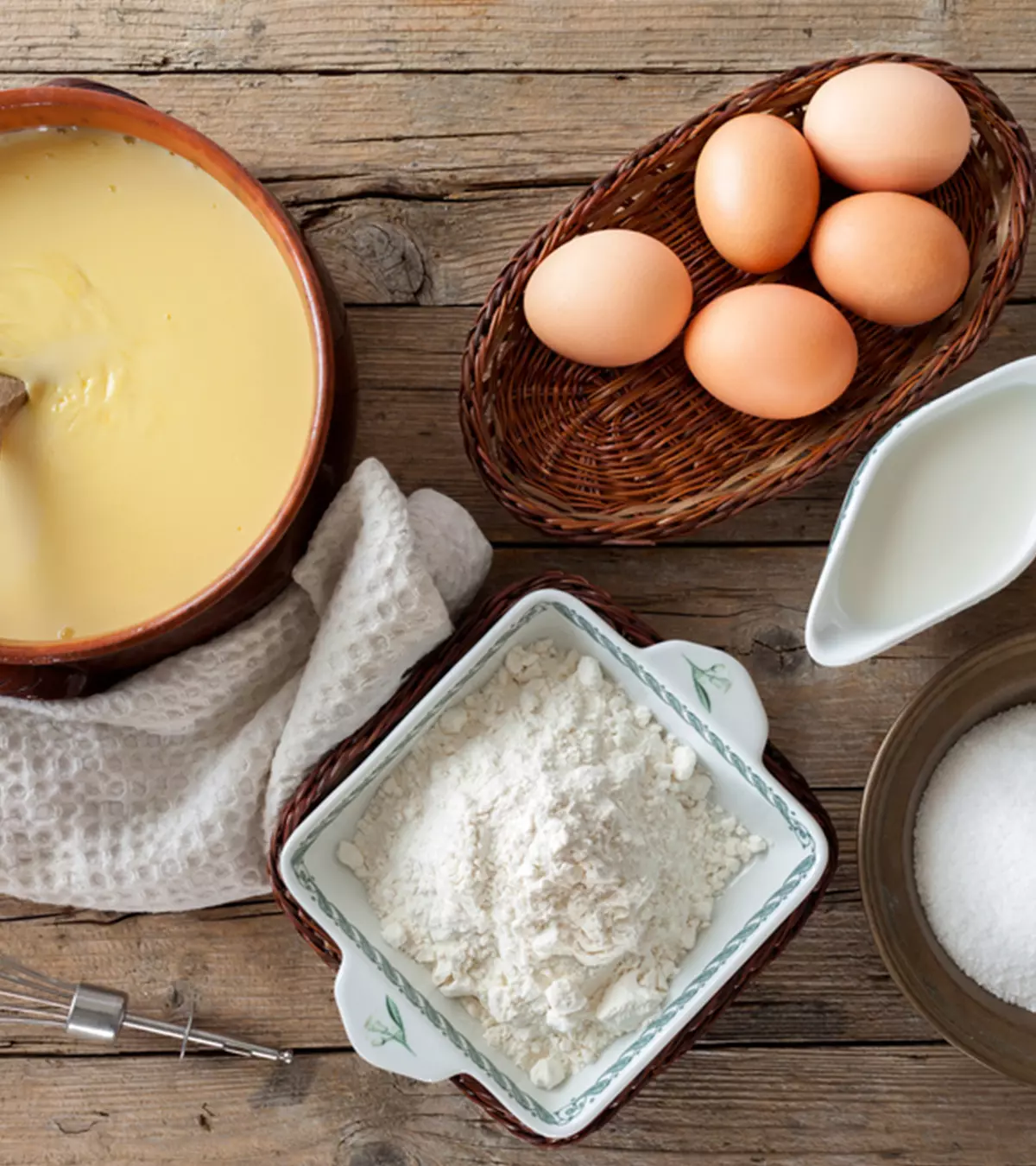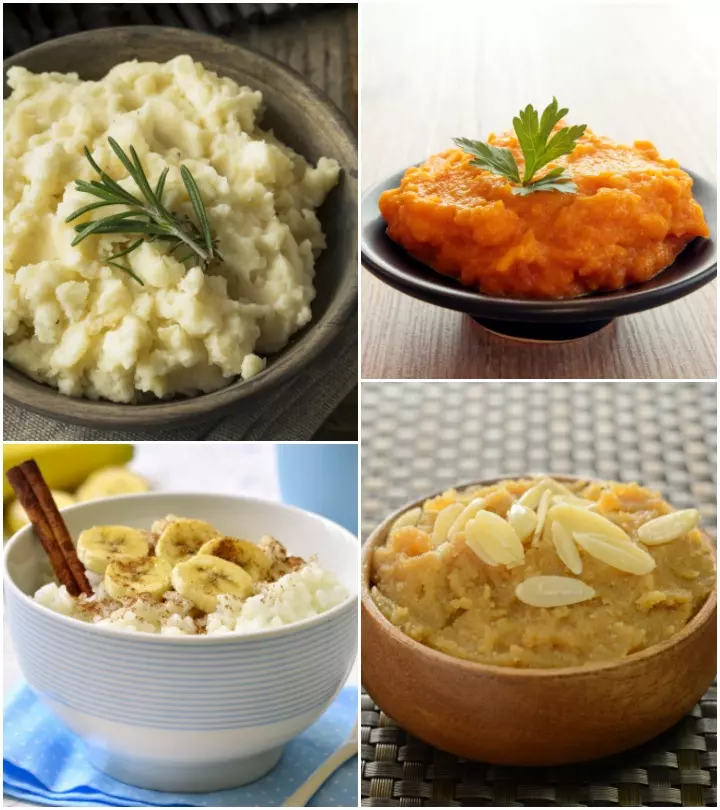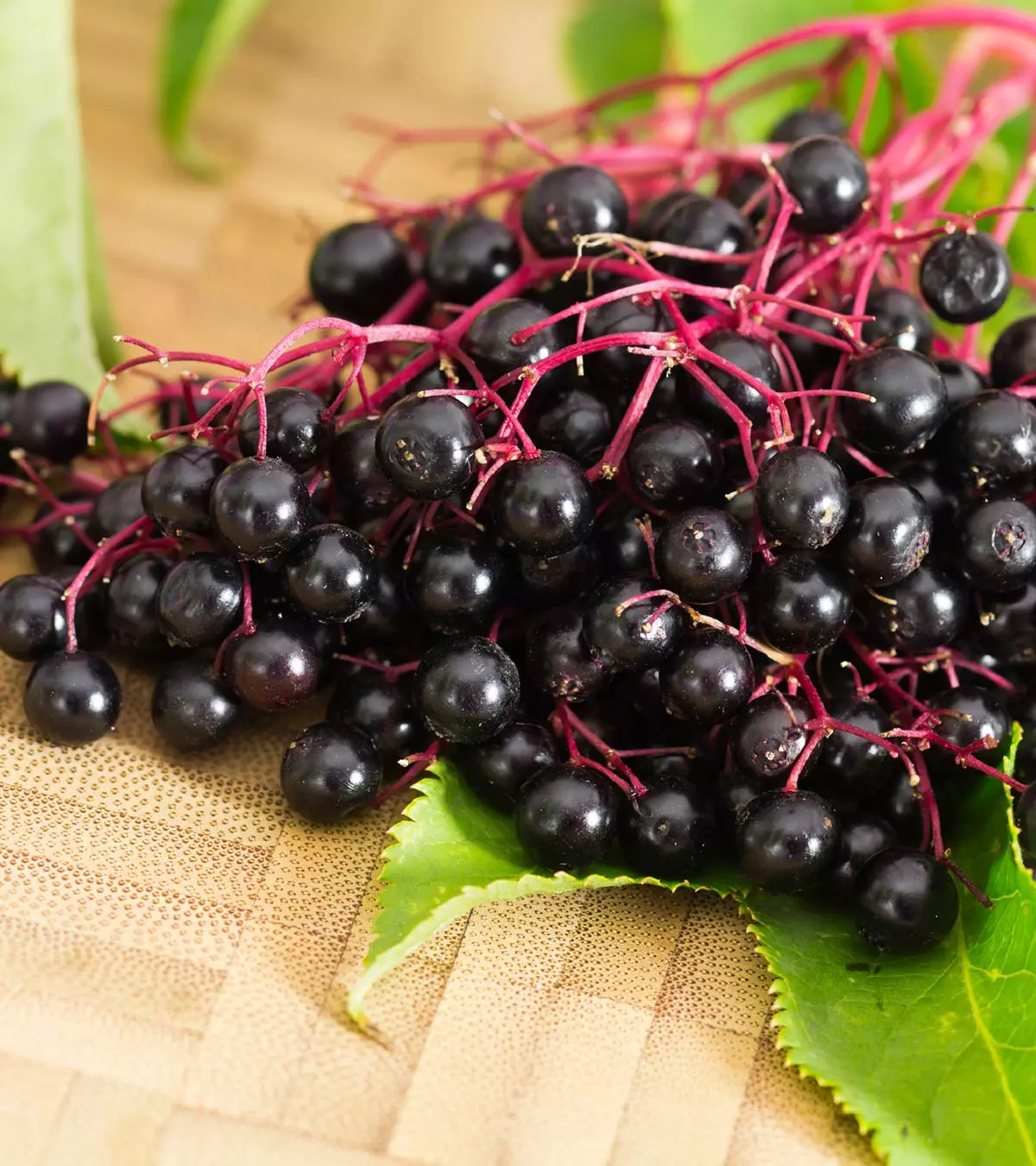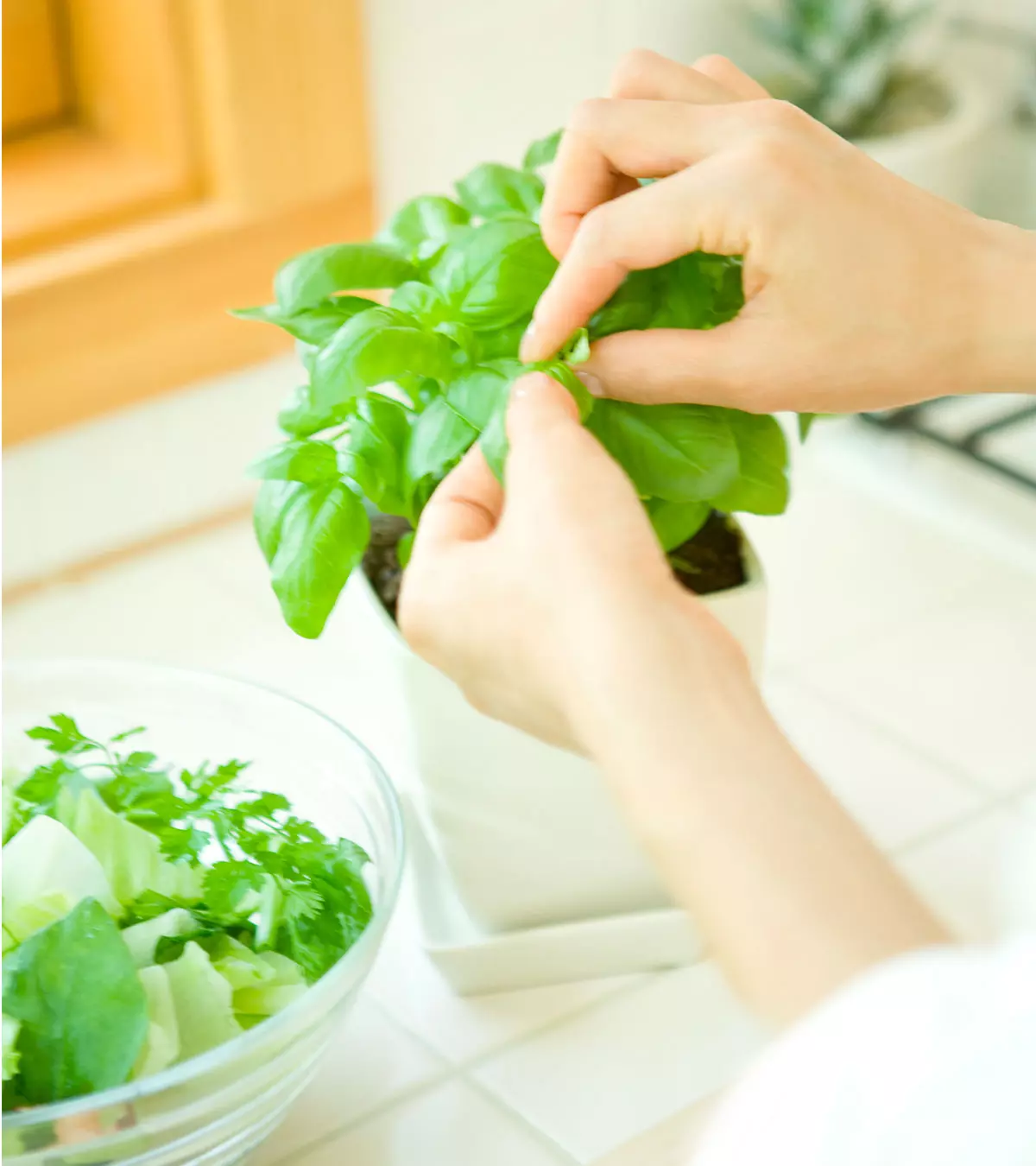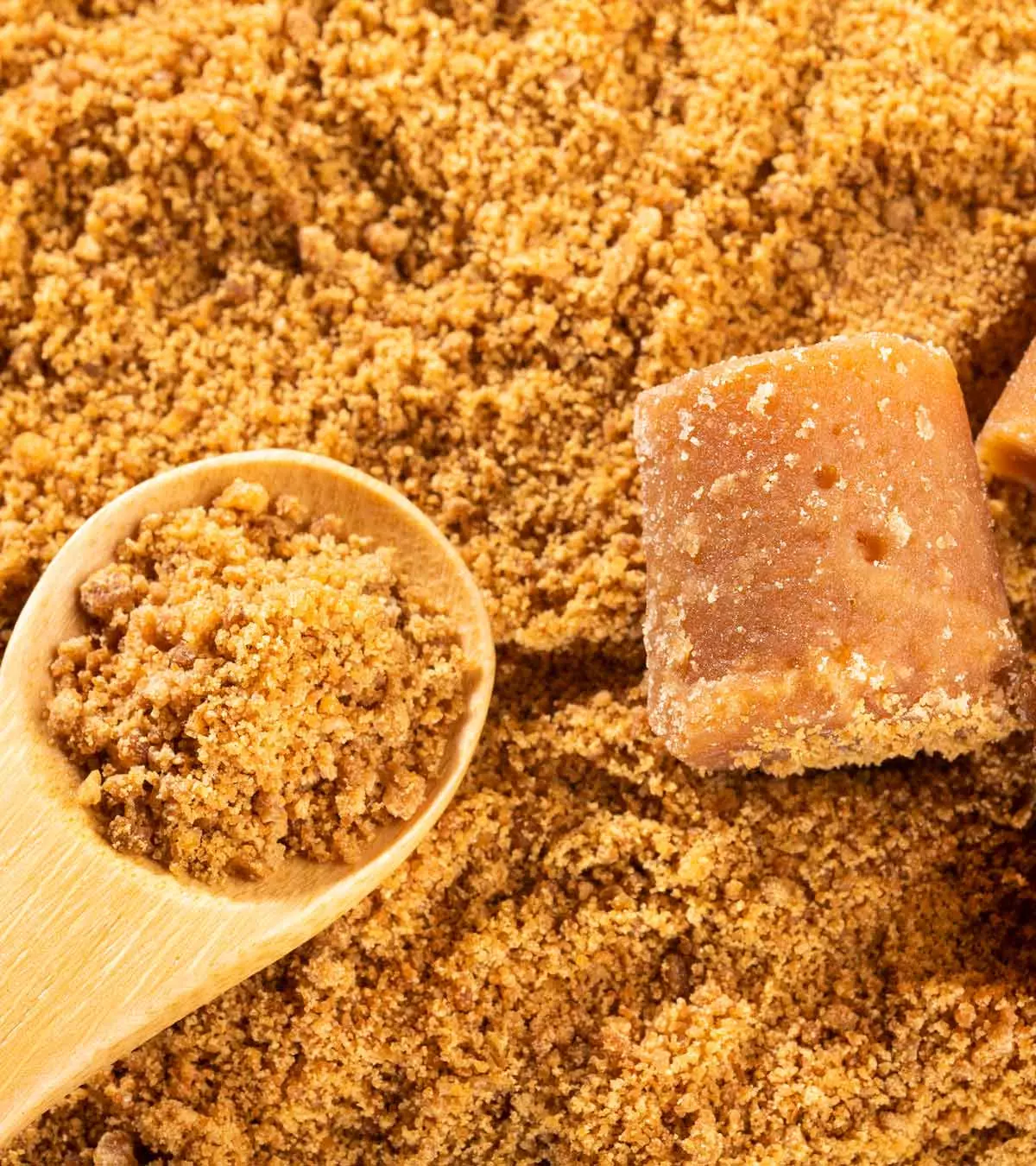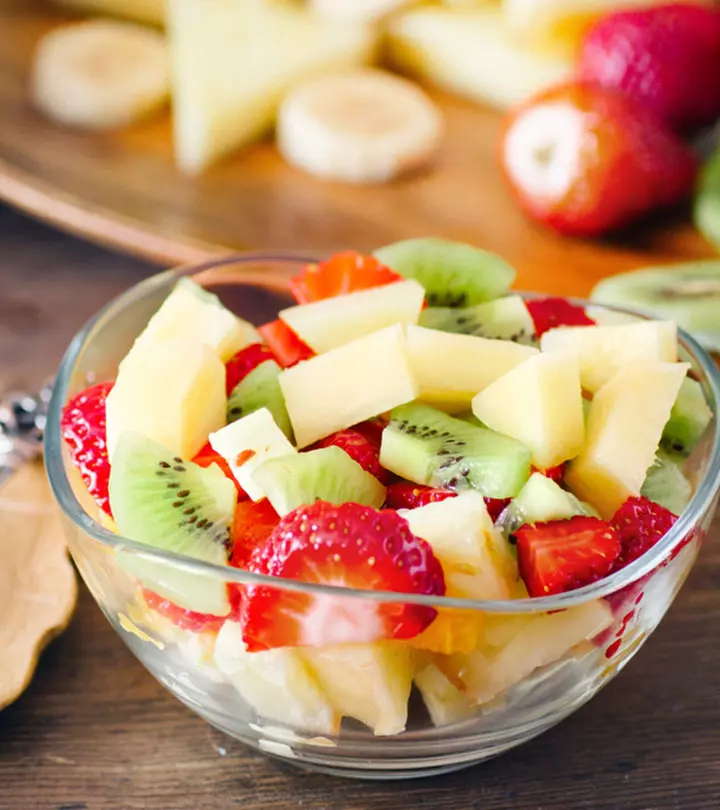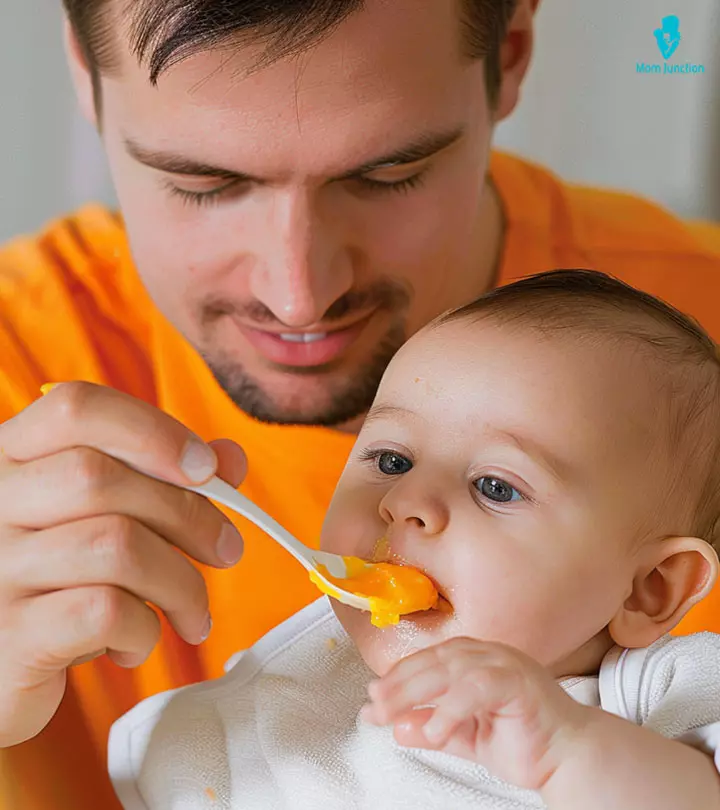
Image: Midjourney/ MomJunction Design Team
Finding suitable food ideas for your four months old baby may be confusing as this is probably the first time they are being introduced to solid food.
As babies turn four months, they become more active and playful. In addition, they start to exhibit more interest in their surroundings. Their stomachs also grow bigger and are ready for more food. Moreover, they seem less interested in milk and are ready to explore new food varieties.
If you recognize these signs in your baby, it is an indication that they have reached the developmental milestone where you may introduce them to solid foods.
Read the post to find whether your baby is ready for solids and to discover some interesting food ideas for them.
Key Pointers
- 4-month-old babies can consume the puree of avocado, banana, and carrots.
- To identify food intolerance issues while introducing solids, serve one food for three to four days instead of feeding mixed foods.
- Avoid adding spices or salt to baby food.
Is Your Baby Ready For Solids?
Your baby must have lost the ‘tongue thrust reflex’ by the time they are four months of age. Thrust reflex prevents the infants from choking. It also causes them to push the food out of their mouths. The World Health Organization recommends that we start solids at six months but solids may be introduced at four months. If your baby seems unsatisfied after milk feeds, can hold their head up without any support, can sit without support, wakes up more frequently at night to feed, or follows your food with their eyes when you eat, then probably it is the time to introduce them to solid foods. See if your baby is interested in the food or not. If your child stares longingly and reaches for your food during dinner, it could be a sign of their developmental readiness, where you may incorporate solid foods through the introduction of new textures and flavors. The baby should be able to sit well without any support. Your child needs good neck control to eat solid foods. It will enable him to swallow his food efficiently. The 4 months baby food should consist of solids.
Infographic: Delicious And Nutritious Solid Foods For 4-Month-Olds

Illustration: Momjunction Design Team
According to Marissa Beck, MS, registered dietitian nutritionist and the founder of REVV Health, “Optimal timing is about signs of readiness over chronological age. The signs to look for are that your baby can sit with minimal support (not slouching) so that safe chewing and swallowing can occur.”
 Quick fact
Quick factTop 10 Ideas
Here are the top 10 ideas for a 4-month-old baby as they begin their journey into solid foods. These simple, age-appropriate recipes will help kick-start their journey toward exploring new tastes and textures.
1. Baby Cereal:
Baby cereal is the most recommended first food for infants. Prepare the cereal with formula or breast milk. This is especially important when considering the dietary needs of the infant. It will give the cereal a texture and taste that he is already familiar with. Cereal is also one of the least allergenic foods, making it suitable for babies of 4 months. Give gluten-free cereal, particularly if you have a family history of Celiac diseases or allergies. Wheat, barley, and rye cereal may be unsuitable for babies as they contain gluten. Oatmeal and rice cereal for babies are the two varieties that contain the least amount of allergens.
2. Avocado:
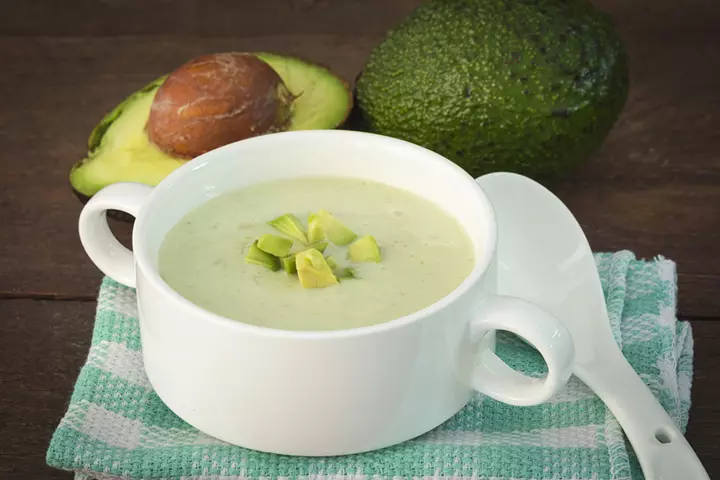
If you want to serve a complete and delicious meal for your baby, consider serving them avocado during mealtime. Slice an avocado and spoon out the flesh. Mash it with a fork or puree in a food processor. Add breast milk or formula milk to make it more ‘soupy’.
3. Banana:
is considered one of nature’s most perfect foods. Babies love them for their natural sweetness. Also, bananas are rich in fiber, so it will keep things moving through your tot’s digestive system. Remove the skin of the banana and puree the flesh. You can also thin it with a bit of formula milk or breast milk.
4. Butternut Squash:

Butternut squash has a pleasing texture, making it ideal for a baby’s palate. Baked butternut squash will make a great food for your little one. All you need to do is pierce the butternut squash and bake for an hour at 375 degrees. Cut it lengthwise and then scoop out the fibers and seeds. Then spoon out the flesh and mash with a fork or masher.
5. Sweet Potato:
Sweet potato is a popular first food for babies. It is easier to digest and does not cause constipation in children. Cut the sweet potato and simmer in a little water until tender. Transfer to a food processor and puree, adding a little water or breast milk.
6. Carrots:
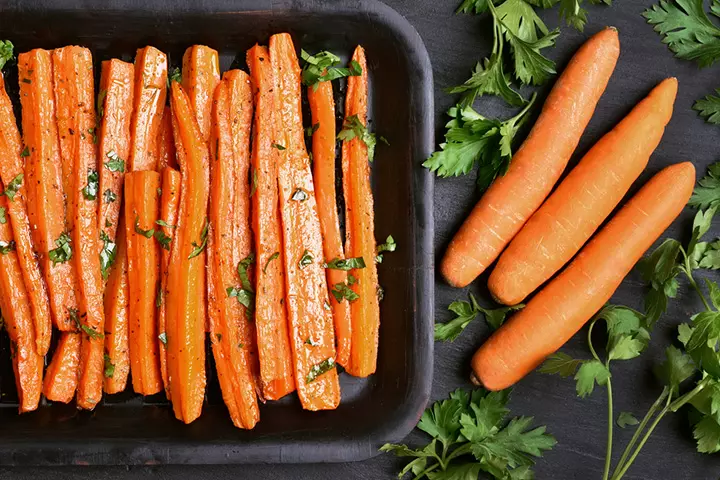
Carrot is another great choice for baby food. Cut the carrots into sticks and bake for over 20 to 30 minutes at 375 degrees Fahrenheit. The food for 4 month old baby is healthy with carrots.
7. Apple:
With your doctor’s consent, you can serve cooked apples to your baby. Dice the apple and simmer or steam until tender. Cooking nutrient-rich apples until it is just tender will ensure that all the goodness is preserved. Transfer to a blender or food processor and blend until smooth. The 4 month old baby food is extremely nutritious with this addition.
8. Pear:
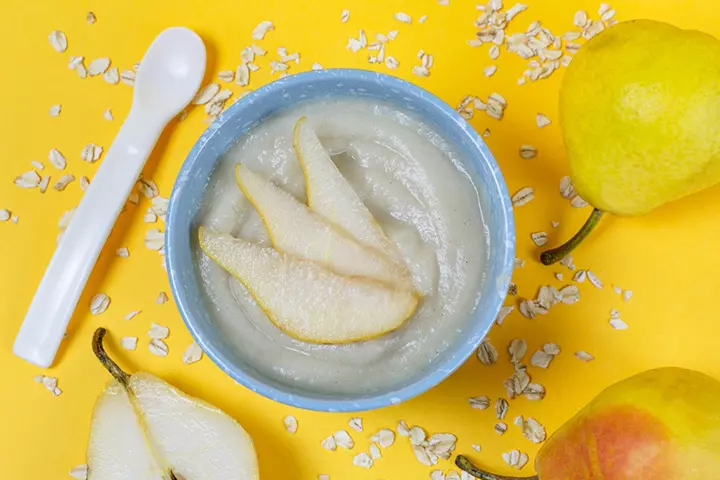
Pears are one of the safest foods to give as a first food. The allergic reactions to pear are rare. Also, they have a low acidity level, which makes them gentle on the tiny tummies. Puree steamed pear and add to the baby’s cereal.
9. Milk:
At this stage, breast milk will provide total nutrition to your baby. Don’t even think of replacing breast milk or formula with any other forms of dairy until 12 months of age. It can cause serious health implications. Also, never give your child low-fat or skim milk products until he is 2 years old. This 4-month-old baby food is extremely delicious with milk but may likely not be well suited to the baby’s digestive system.
 Quick fact
Quick fact10. Peas:

Peas are a good source of fiber and proteins and will make an ideal first veggie for babies. Steam the peas for 6 minutes and puree them in a food processor, adding the cooking liquid. Strain using a sieve and discard the solids to prevent choking hazards. Pea puree may thicken after it is refrigerated. So stir in a small amount of water, formula or breast milk while heating.
Tips
- Be calm when introducing solids to the little one and ensure they sit comfortably and are not too hungry. Also, always stay with the baby during feeding time to prevent choking.
- A baby’s tummy is the size of his fist. Do not expect your baby to finish a meal. He probably will eat just ½ of a tablespoon portion of what you serve to him.
- Start with a single food and serve it to the baby for days at a stretch. It will help you learn the signs of intolerance and allergy. Follow this process until your baby has tried a variety of foods.
Mother of an eight-month-old, who goes by the name Hahanoyume, writes on her blog, “I started feeding M (her first food when she was 4.5 months old… I followed the four-day wait rule in the first few weeks when I started her on solids. It was to check for possible reactions to new foods, such as food sensitivities or food allergies, and to look out for possible digestive problem-causing culprits. I first gave her sweet potatoes, sweet peas, butternut squash, avocado, pear, applesauce, broccoli, and carrots (i).”
- Cooking breaks down the cell wall, making the food easier to chew and digest. Even when cooked well, serve veggies to your baby on a small, infant-sized spoon to prevent overfilling the baby’s mouth.
- Place the spoon near your baby’s lips and let him taste and smell. Don’t be surprised if your tot rejects the first spoon. Wait for a day or two and try again. Don’t fret over any mess the baby creates.
- Do not add any salt or pepper to the baby food.
- As your baby gets used to solid food, make the puree less runny. You can mash the food instead of pureeing it or may offer them finger foods if practicing baby-led weaning.
- You could also maintain a food diary to track the introduction of new foods and any potential sensitivities and allergic reactions.
 Point to consider
Point to considerHomemade Baby Food Recipes
1. Quinoa baby cereal
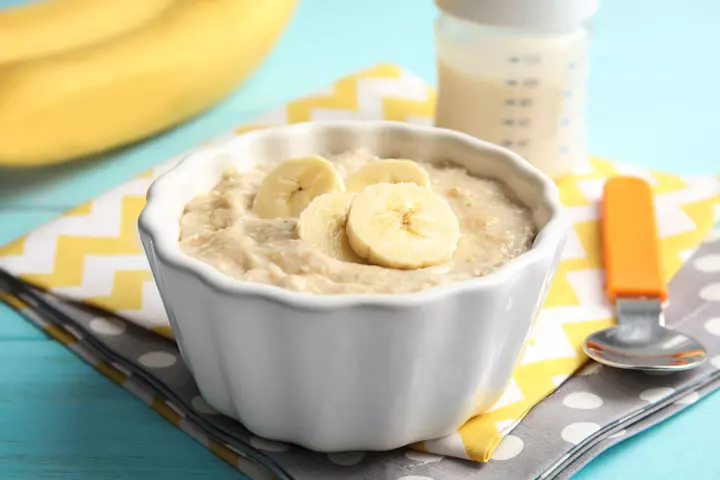
You Will Need:
- 1 cup water
- 1/2 cup quinoa
How to make:
- Boil water in a saucepan over medium-high heat.
- Add quinoa and stir. Reduce to a simmer, cover, and cook for 10 minutes. Switch off the flame and let the mixture sit for five minutes.
- Blend the mixture using a blender or food processor using a smooth, lump-free puree.
- Transfer the cereal into a feeding bowl and feed the baby.
2. Multigrain cereal
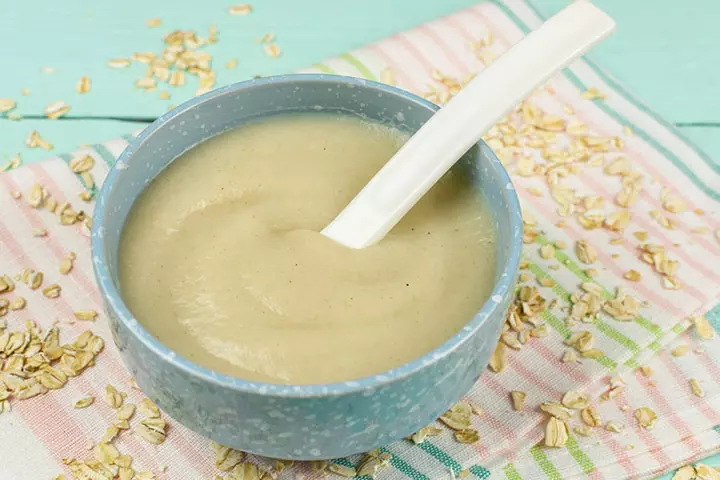
You Will Need:
- ⅓ cup steel cut oats
- ⅓ cup brown short grain rice
- 3 cups water
How to make:
- Place the grains and water into a saucepan and boil over high heat.
- Reduce heat and simmer. Cover the pan and cook the grains for 30 minutes or until all the grains are tender.
- Once done, let the mixture cool for 15 to 20 minutes or until cool.
- Blend the cooked grains into a smooth, lump-free puree.
- Feed the puree to the baby and freeze the leftovers for later use.
Frequently Asked Questions
1. What if a baby refuses their first solid food?
A baby might refuse solid food if they are full, unwell, or irritable. Therefore, avoid forceful spoon-feeding, and offer self-feeding opportunities when they are hungry. Check the consistency of the solid food and make it baby-compatible. Foods that are too hot or too cold might also be refused. Try a variety of baby-weaning food initially to see the taste they prefer the most. If your baby still refuses to eat solid foods, consult a pediatrician.
2. Can I give my four-month-old orange juice?
Juices may seem easy to introduce babies to the taste of fruits. However, the American Academy of Pediatrics advises not to give babies juices until one year unless recommended by a pediatrician (1).
3. How should I keep baby foods safe?
Always feed your baby fresh, homemade food. Unlike store-bought options, homemade food is healthy and allows control over freshness and ingredients used. When preparing baby food, wash the ingredients properly in clean tap water. If you are preparing baby food in bulk, freeze the food immediately in a tightly sealed container. Label the container with the date of preparation and time. Only take out the required amount of food from the container when feeding a baby (2). Always check the quality of the food before feeding it to a baby.
4. Do doctors recommend solids at four months?
Blanca Garcia, RDN, nutrition specialist at MIDSS, suggests, “The Academy of Pediatrics (AAP) supports parents who want to breastfeed exclusively for about six months after birth. Therefore, not all doctors may recommend that infants start solids at four months. Some evaluate an infant and may determine that they may be ready at four months, but it’s not blanket advice for everyone.”
5. How can I make sure my four-month-old baby is not allergic to any foods?
Foods that a baby could be allergic to include eggs, peanuts, sea food, cow’s milk, and soy. If you fear that your baby is allergic to these food items or you have close relatives with allergic conditions, then consult a medical health practitioner who would guide you on how to introduce these foods to the baby (3).
If you are looking for food ideas for your 4-month-old baby, begin by offering easily digestible foods such as bananas, sweet potatoes, and cereals. At four months, your tiny tot may be interested in eating foods other than milk. Though most babies are fed various solid foods after six months, you may introduce mashed forms of fruits and vegetables for babies after they cross the four-month mark. Nevertheless, do not rush into introducing foods to your baby. Also, remember that all babies do not react to new foods alike. Hence, if you notice that your baby is not interested in certain foods, give them some time or try feeding other varieties.
Embark on a culinary adventure with step-by-step instructions and expert tips, as you create mouthwatering and nutritious baby puree recipes suitable for your 4-month-old.
Personal Experience: Source
MomJunction articles include first-hand experiences to provide you with better insights through real-life narratives. Here are the sources of personal accounts referenced in this article.
i. Food I feed my baby.https://hahanoyume.wordpress.com/2015/05/31/food-i-feed-my-baby/
References
- Weighing in on fruit juice: AAP now says no juice before 1.
https://publications.aap.org/aapnews/news/14804 - How to make homemade baby food?
https://www.eatright.org/health/pregnancy/babys-first-foods/how-to-make-homemade-baby-food - Feeding your 4 -to- 7 month old.
https://kidshealth.org/en/parents/feed47m.html - Starting Solids
https://llli.org/breastfeeding-info/starting-solids/ - Cow’s milk and children
https://medlineplus.gov/ency/article/001973.htm - Salt: the facts
https://www.nhs.uk/live-well/eat-well/food-types/salt-in-your-diet/
Community Experiences
Join the conversation and become a part of our nurturing community! Share your stories, experiences, and insights to connect with fellow parents.
Read full bio of Moloko Mehlape
- Blanca Garcia has been a registered dietitian nutritionist since 2013 with a private practice in Pasadena, California. She currently consults through the preschool Head Start Programs in Los Angeles. Blanca graduated in 2011 from California State University of Los Angeles and interned at the University of Puerto Rico Medical Science campus in 2012.
 Blanca Garcia has been a registered dietitian nutritionist since 2013 with a private practice in Pasadena, California. She currently consults through the preschool Head Start Programs in Los Angeles. Blanca graduated in 2011 from California State University of Los Angeles and interned at the University of Puerto Rico Medical Science campus in 2012.
Blanca Garcia has been a registered dietitian nutritionist since 2013 with a private practice in Pasadena, California. She currently consults through the preschool Head Start Programs in Los Angeles. Blanca graduated in 2011 from California State University of Los Angeles and interned at the University of Puerto Rico Medical Science campus in 2012. - Marissa Beck is the founder of REVV Health. She did her MSc from Columbia University in New York, and BA from Tufts University in Boston, MA. With 13 years of experience, Marissa previously worked as the Nutrition Program Manager at Nintendo through wellness vendor, CareATC.
 Marissa Beck is the founder of REVV Health. She did her MSc from Columbia University in New York, and BA from Tufts University in Boston, MA. With 13 years of experience, Marissa previously worked as the Nutrition Program Manager at Nintendo through wellness vendor, CareATC.
Marissa Beck is the founder of REVV Health. She did her MSc from Columbia University in New York, and BA from Tufts University in Boston, MA. With 13 years of experience, Marissa previously worked as the Nutrition Program Manager at Nintendo through wellness vendor, CareATC.
Read full bio of Jessica Albert
Read full bio of Swati Patwal
Read full bio of Vidya Tadapatri












